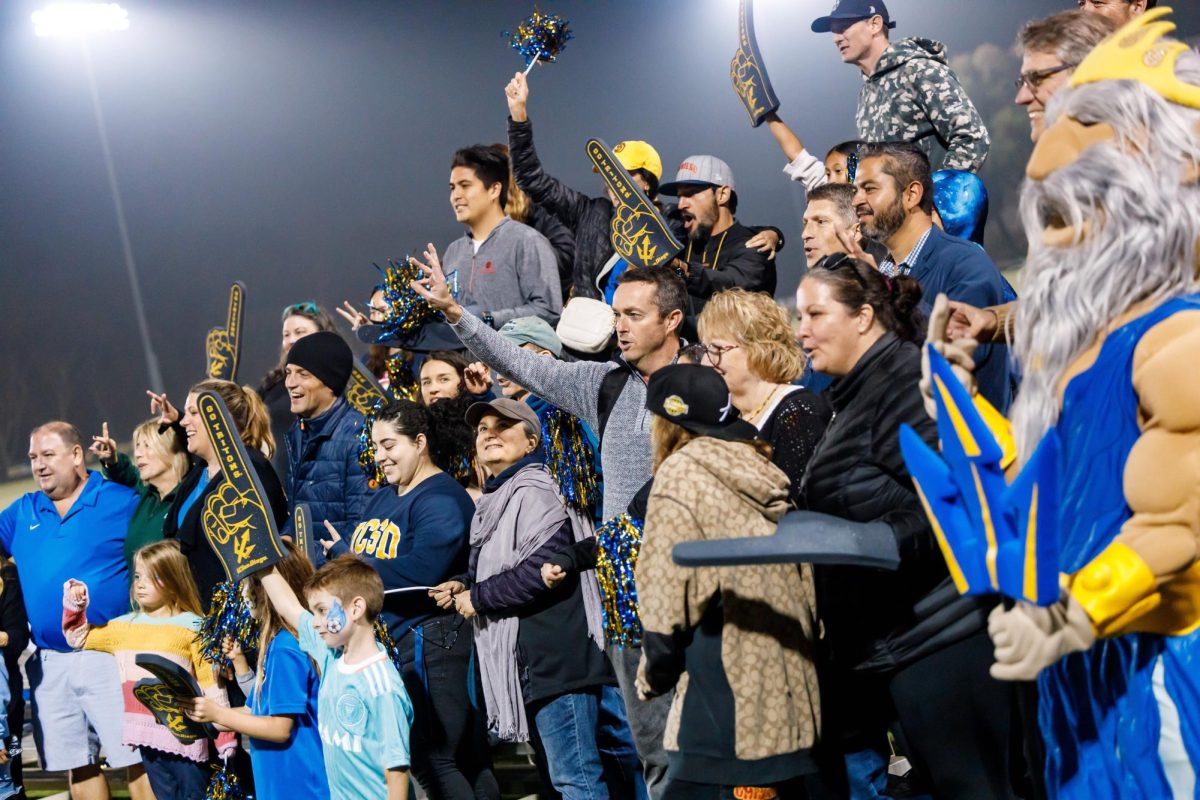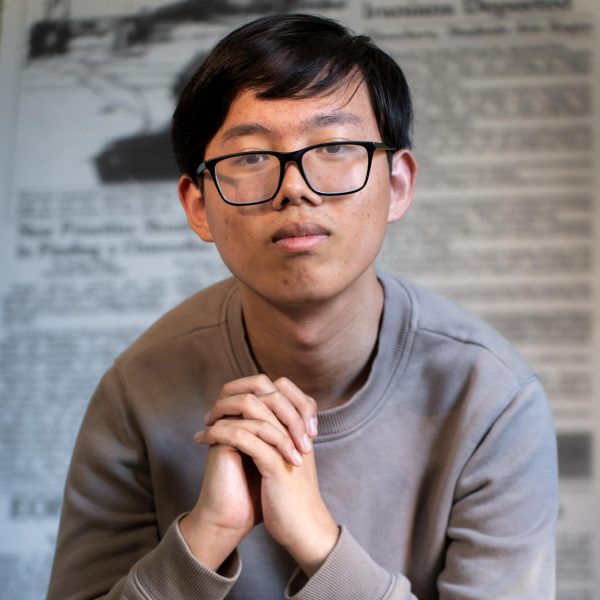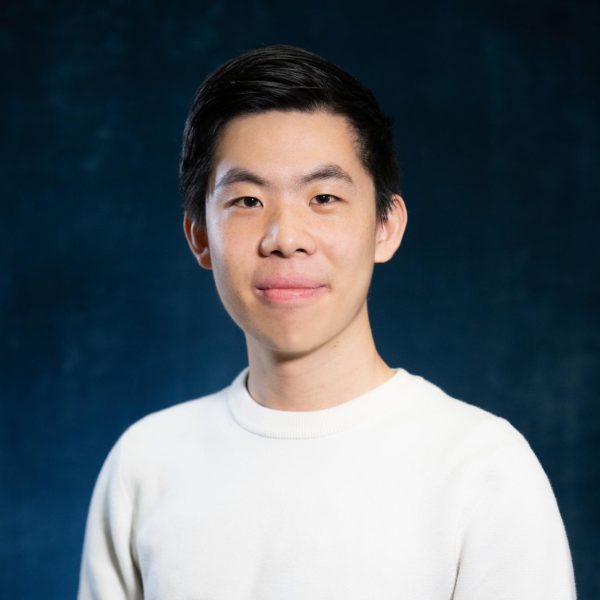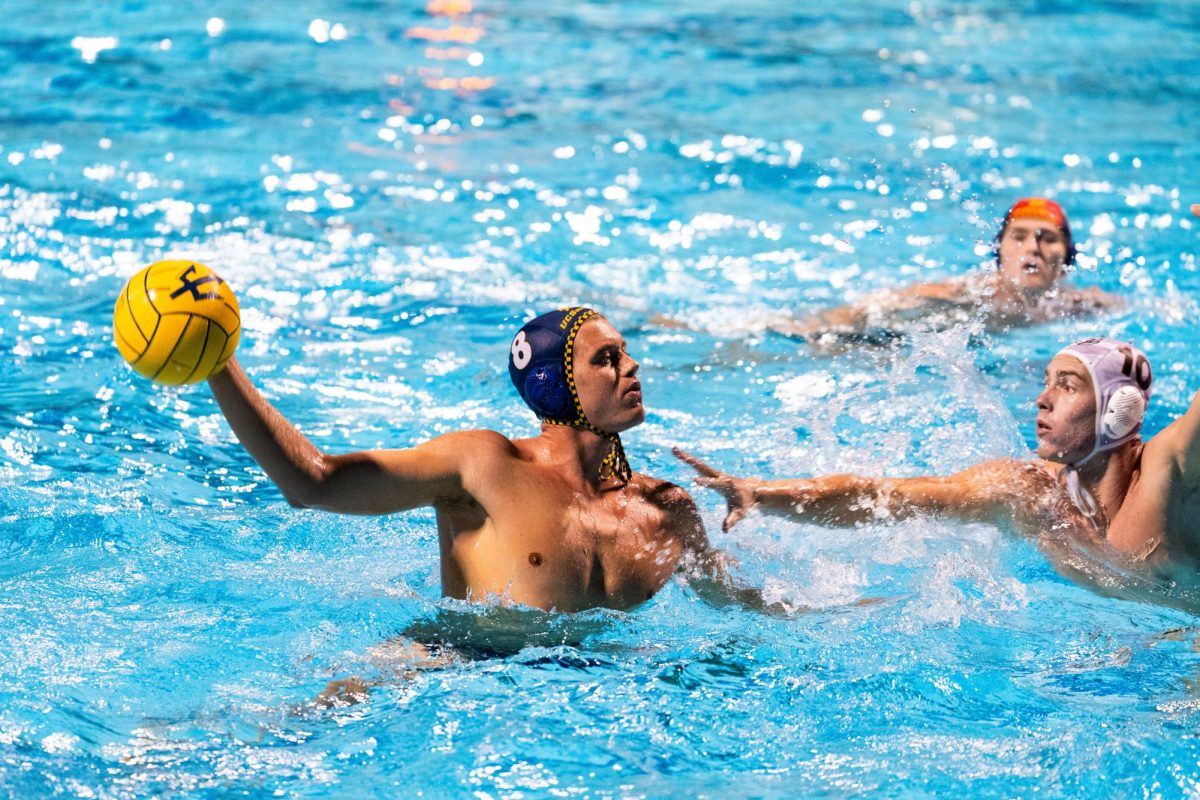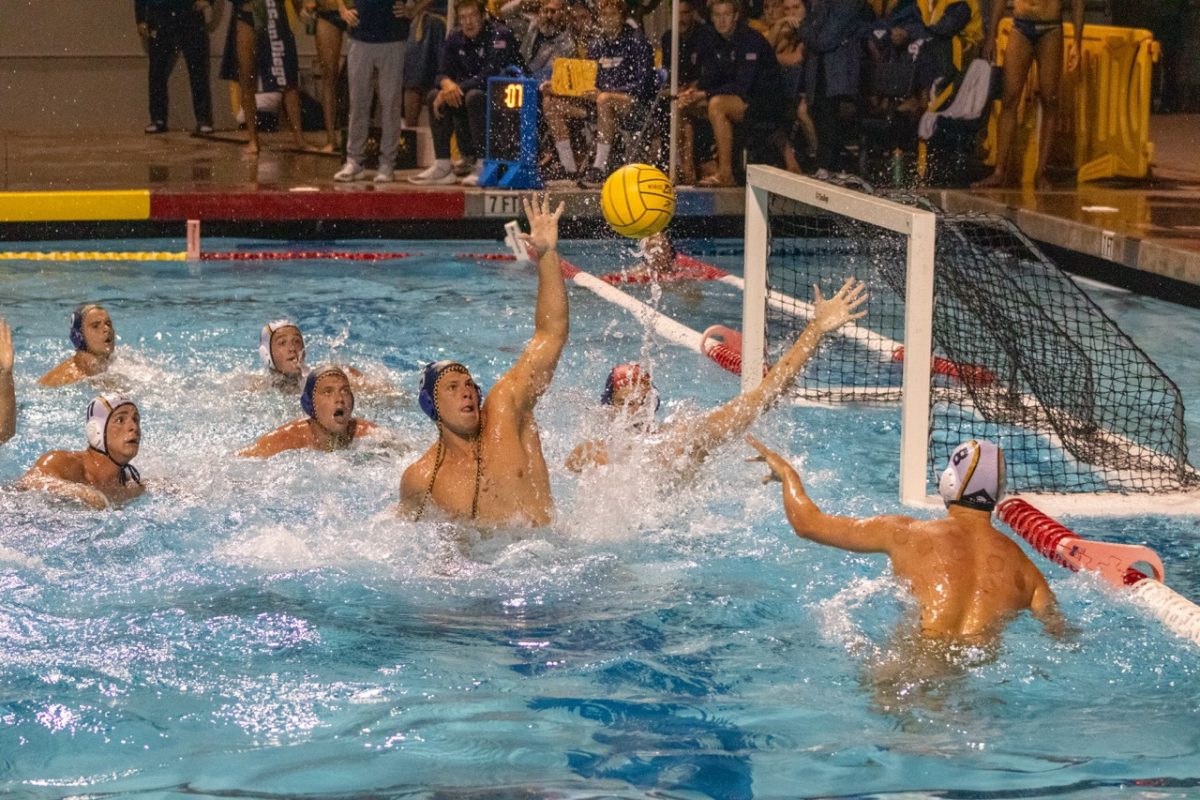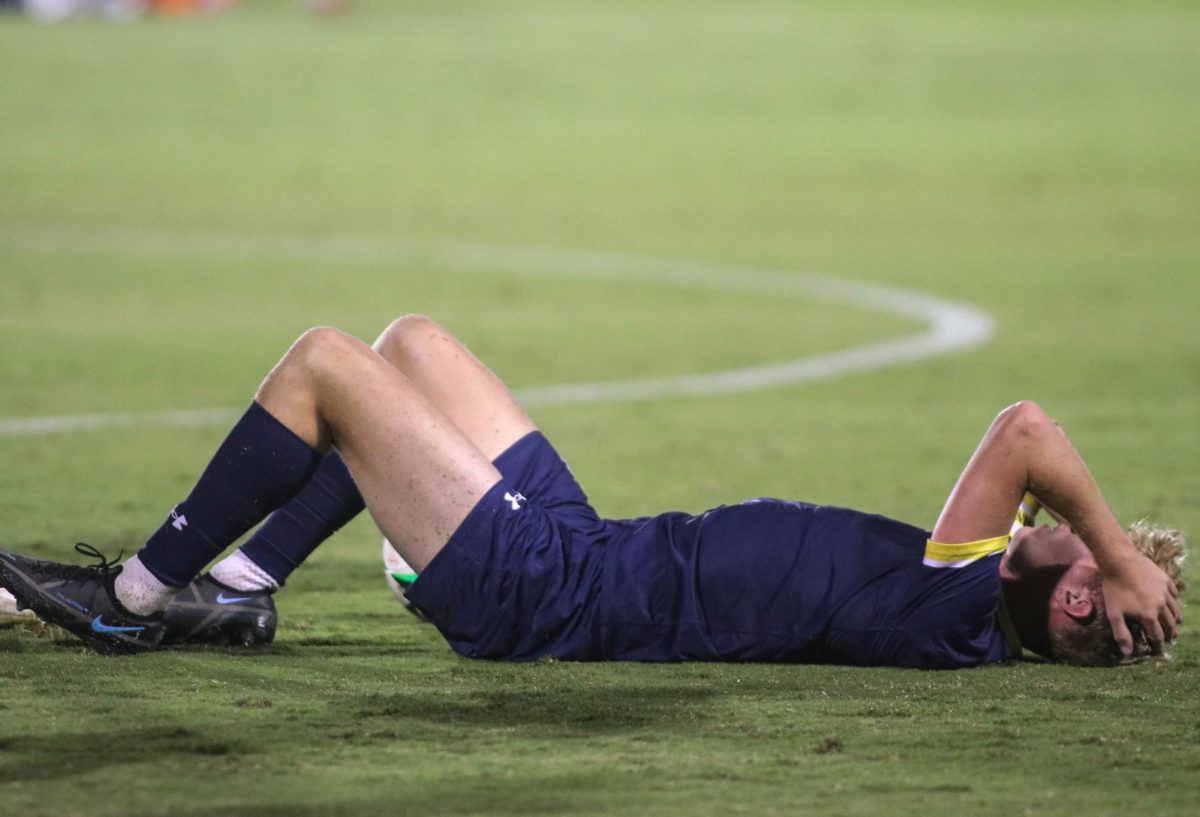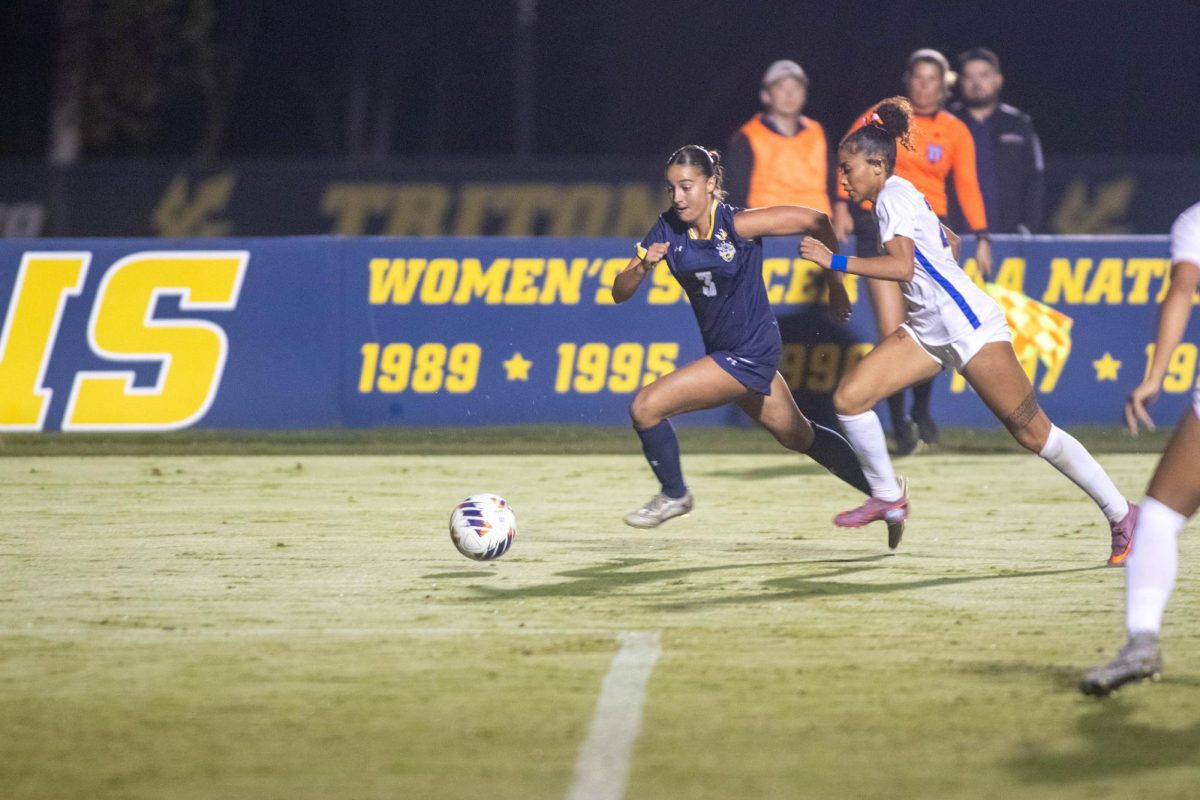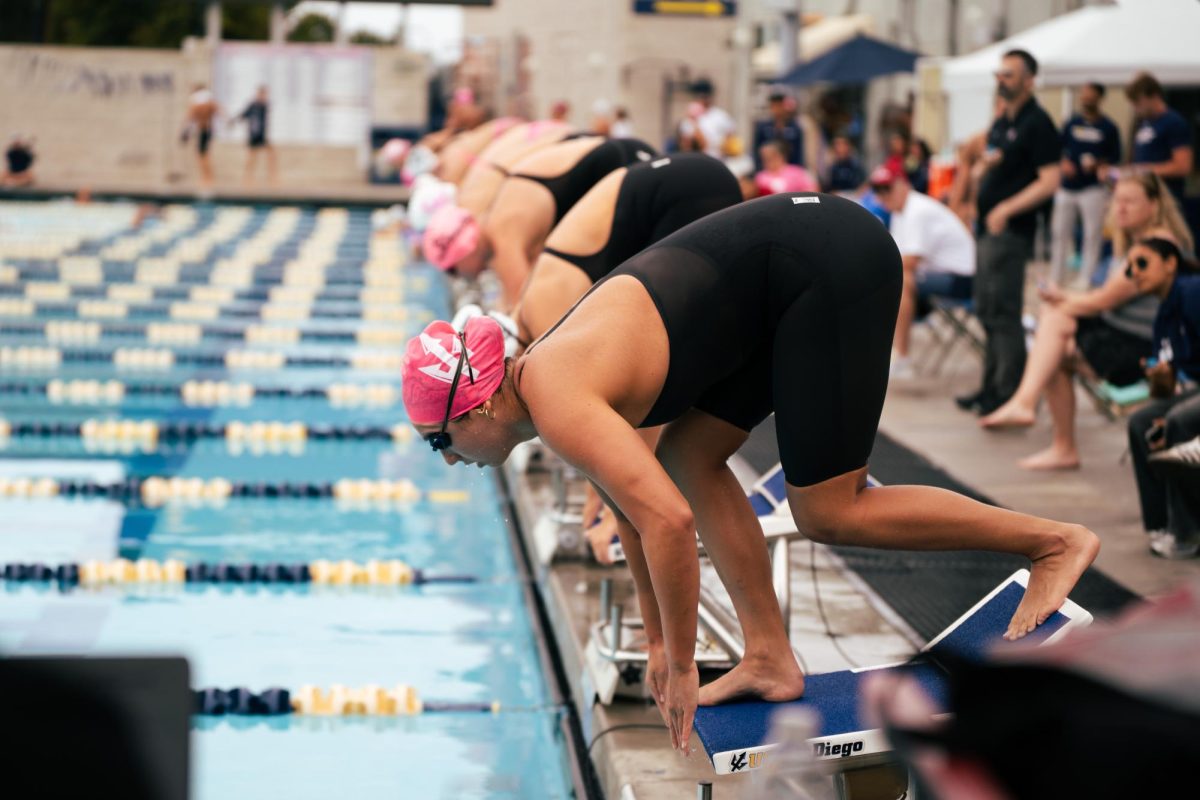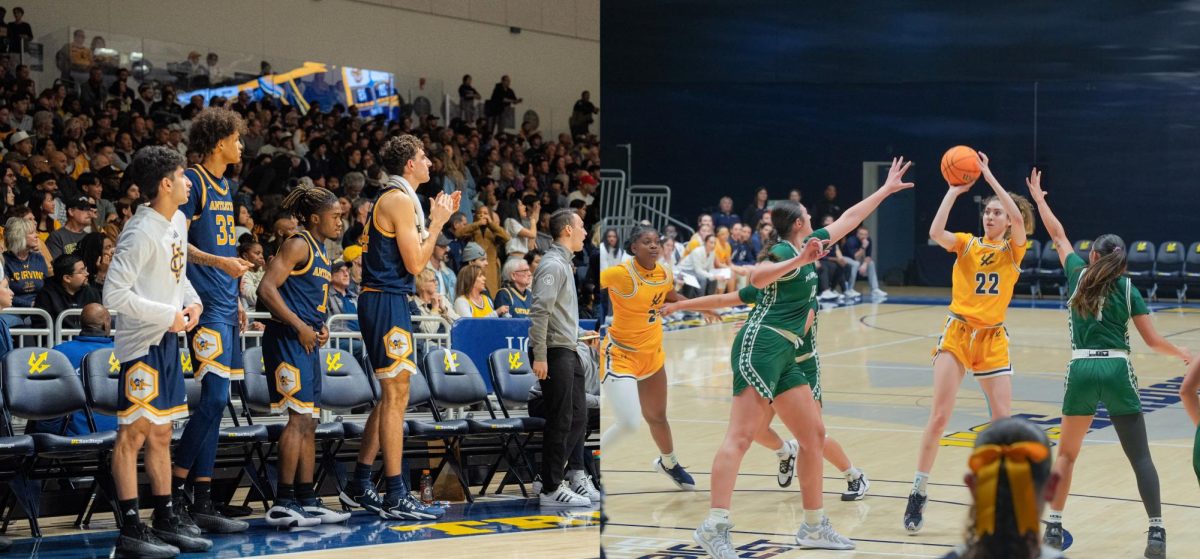After only seven seasons, UC San Diego’s time in the Big West is coming to an end.
UCSD will join the West Coast Conference for the 2027-28 season, as first reported by Jon Rothstein of CBS Sports on Tuesday morning, Sept. 2. The school and conference later announced this news on Wednesday afternoon, Sept. 3.
The shocking news comes after the Tritons’ first year of Division-I postseason eligibility, which saw both UCSD men’s and women’s basketball teams win their respective Big West Championships. UCSD will be the first public school to compete in the WCC since Nevada’s departure in 1979.
Fourteen of UCSD’s 24 sponsored sports will be added to the WCC in 2027-28, with the remaining 10 teams hosted by other conferences. The WCC does not sponsor six UCSD sports currently participating in the Big West: men’s volleyball, women’s water polo, men’s and women’s swimming, and men’s and women’s track and field. Other Triton sports not sponsored by the Big West nor the WCC, such as fencing, already participate in other conferences. At present, no affiliate memberships have been agreed upon for these teams.
“There’s a number of different options out there,” Earl Edwards, athletic director emeritus, said. “We’re looking at different conferences with the Big West being one of those.”
Chancellor Pradeep Khosla lauded the move, claiming that transitioning to the WCC aligns with the University’s excellence in academics and research.
“This is a time for us, the second-most applied-to school in the country, to gain more mind share in the country and in the region by letting people know that athletics is also a part of our excellent strategy,” Khosla said.
Edwards said that geography was an important factor in UCSD’s decision. The WCC stretches from Seattle to San Diego, with member schools in Washington, Oregon, and California.
“It was about six weeks ago when we got seriously approached by the president of [University of San Diego],” Khosla said. “At that point, I put a committee of six people together, and I said, ‘Guys, look into this, see if it makes sense. If it doesn’t make sense, we aren’t going to do it, but come back and tell me what makes sense.’ The committee, which included Earl, came back with a unanimous, very positive recommendation.”
Edwards also noted that some coaches and staff were consulted in the decision-making process. Most coaches were notified on Tuesday — when Rothstein reported the impending move — and Triton student-athletes were notified on Wednesday morning.
The WCC has recently been searching for new member schools with the looming departure of basketball powerhouse Gonzaga — which opted to join the new-look Pac-12 in 2026 — and BYU’s 2023 exit to the Big 12. Seattle and Grand Canyon were unveiled as new members in May 2024, but the latter reneged on the agreement for a more lucrative offer from the Mountain West. The conference is looking to add one to three new members, including UCSD, and is rumored to be courting fellow Big West program UC Santa Barbara as well.
“Throughout the process, certainly in the last six weeks, but even longer than that, our Presidents’ Council has been engaged in terms of what our strategy was, who we should potentially identify as a member institution, and we landed on UC San Diego,” WCC Commissioner Stu Jackson said. “They were the member that we wanted and identified as our number one choice.”
Concurrently, the Big West will be losing Hawai’i and UC Davis in 2026, with both universities also departing for the Mountain West. They will be replaced by Cal Baptist and Utah Valley — two schools from the struggling Western Athletic Conference — and Big Sky member Sacramento State.
UCSD becomes the conference’s 10th member, joining cross-town rival San Diego. The Tritons will now face the Toreros twice a season, intensifying a rivalry that has featured a yearly non-conference game for the past three seasons.
The WCC is best known for its prowess in men’s basketball, with Gonzaga and Saint Mary’s recently becoming perennial March Madness participants. The conference has also earned acclaim in women’s soccer, boasting alumni talent such as Megan Rapinoe and Julie Ertz.
“We want to focus on the whole spectrum of sports we have,” Khosla said. “We want to use basketball as a coalescing force, since we don’t have football.”




